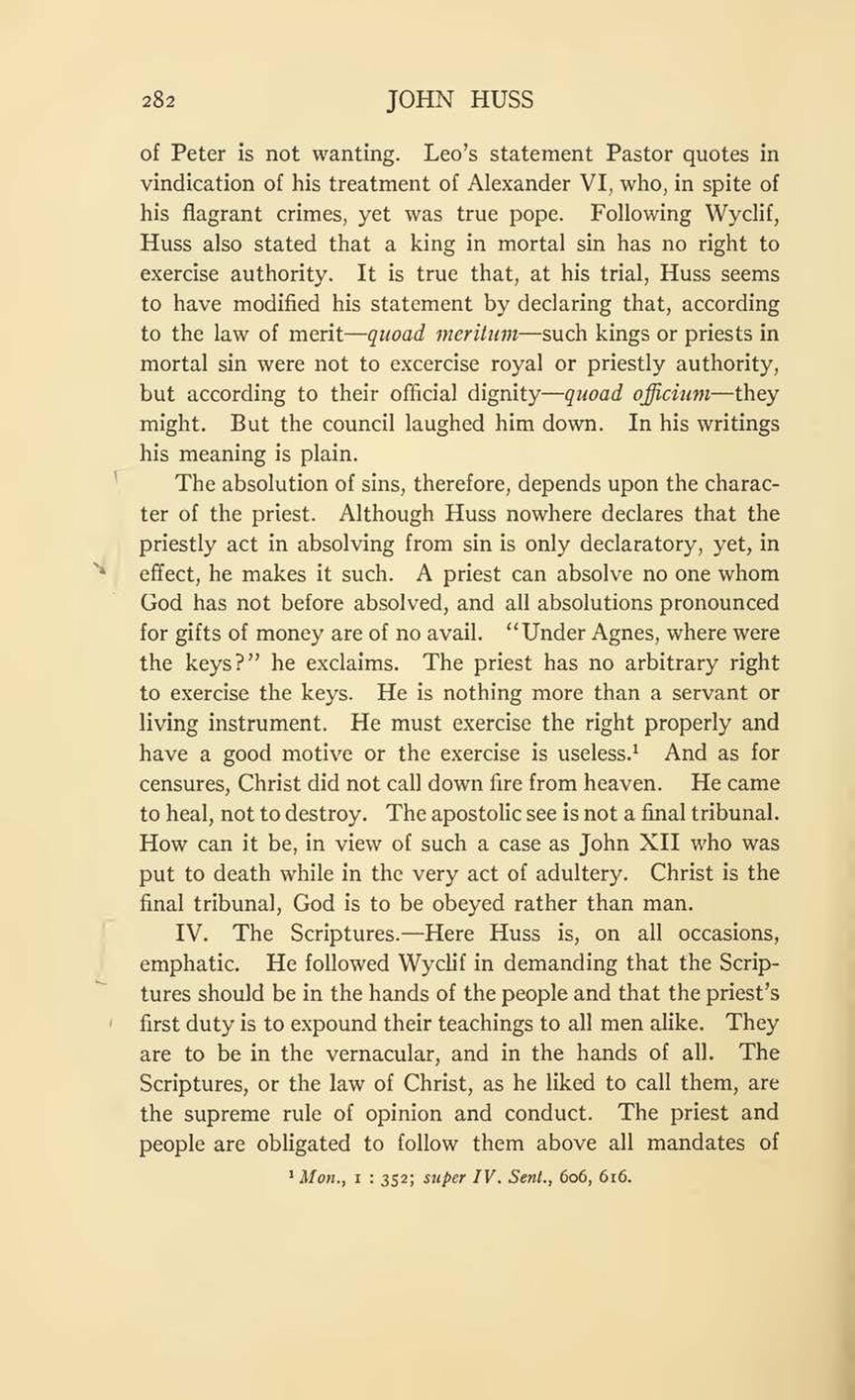of Peter is not wanting. Leo’s statement Pastor quotes in vindication of his treatment of Alexander VI, who, in spite of his flagrant crimes, yet was true pope. Following Wyclif, Huss also stated that a king in mortal sin has no right to exercise authority. It is true that, at his trial, Huss seems to have modified his statement by declaring that, according to the law of merit—quoad meritum—such kings or priests in mortal sin were not to excercise royal or priestly authority, but according to their official dignity—quoad officium—they might. But the council laughed him down. In his writings his meaning is plain.
The absolution of sins, therefore, depends upon the character of the priest. Although Huss nowhere declares that the priestly act in absolving from sin is only declaratory, yet, in effect, he makes it such. A priest can absolve no one whom God has not before absolved, and all absolutions pronounced for gifts of money are of no avail. “Under Agnes, where were the keys?” he exclaims. The priest has no arbitrary right to exercise the keys. He is nothing more than a servant or living instrument. He must exercise the right properly and have a good motive or the exercise is useless.[1] And as for censures, Christ did not call down fire from heaven. He came to heal, not to destroy. The apostolic see is not a final tribunal. How can it be, in view of such a case as John XII who was put to death while in the very act of adultery. Christ is the final tribunal, God is to be obeyed rather than man.
IV. The Scriptures.—Here Huss is, on all occasions, emphatic. He followed Wyclif in demanding that the Scriptures should be in the hands of the people and that the priest’s first duty is to expound their teachings to all men alike. They are to be in the vernacular, and in the hands of all. The Scriptures, or the law of Christ, as he liked to call them, are the supreme rule of opinion and conduct. The priest and people are obligated to follow them above all mandates of
- ↑ Mon., 1: 352; super IV. Sent., 606, 616.
